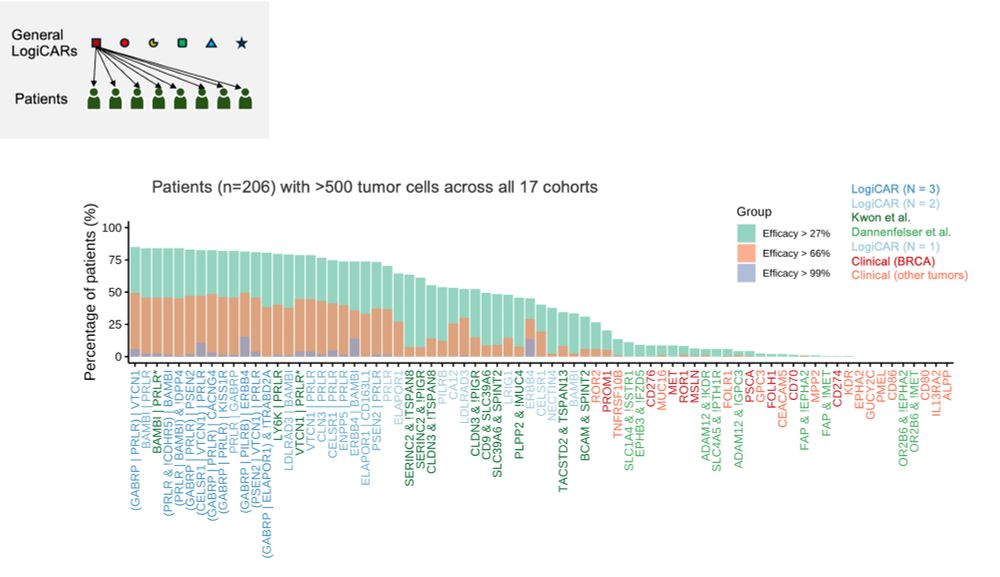mlandbio.substack.com/p/from-singl...

mlandbio.substack.com/p/from-singl...






at the NCI, and 2) a 35-patient TNBC cohort at Cedars Sinai.

at the NCI, and 2) a 35-patient TNBC cohort at Cedars Sinai.










So excited to share the heart of my PhD work:
🌟 LogiCAR designer, a framework that identifies logic-gated multi-antigen circuits for next-generation cell therapies 🧩🧵
www.biorxiv.org/content/10.1...

So excited to share the heart of my PhD work:
🌟 LogiCAR designer, a framework that identifies logic-gated multi-antigen circuits for next-generation cell therapies 🧩🧵
www.biorxiv.org/content/10.1...
NCI HTAN Data Jamboree! Grateful to work with a brilliant team to develop HTANalyzer, a multi-agent LLM that helps researchers query and analyze HTAN spatial transcriptomics data through natural language queries. Check out our project github: github.com/NCI-HTAN-Jam...

NCI HTAN Data Jamboree! Grateful to work with a brilliant team to develop HTANalyzer, a multi-agent LLM that helps researchers query and analyze HTAN spatial transcriptomics data through natural language queries. Check out our project github: github.com/NCI-HTAN-Jam...

